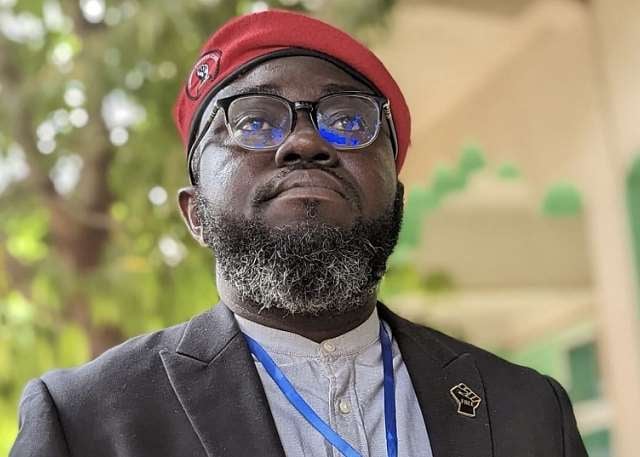Oliver Barker-Vormawor, a prominent Ghanaian social activist, has vehemently criticized the government’s decision to designate July 1st as a National Day of Prayer and Thanksgiving, coinciding with the nation’s Republic Day. He argues that invoking prayer, particularly to a “White Jesus,” represents a stark irony, suggesting that Ghanaians are seeking divine intervention to resolve problems they themselves have created through their actions. Barker-Vormawor advocates for July 1st to remain a day of reflection on Ghana’s hard-won independence and a reaffirmation of national sovereignty, rather than a day of religious observance. He views the emphasis on prayer as a form of self-imposed subservience, a betrayal of the very principles of self-determination that Republic Day commemorates.
Barker-Vormawor’s critique centers on the perceived contradiction between seeking divine assistance and acknowledging responsibility for the nation’s challenges. He questions the sincerity of praying for solutions while simultaneously perpetuating the issues that necessitate those prayers. Furthermore, he contests the image of a “White Jesus” as the recipient of these prayers, highlighting the colonial undertones and the potential for perpetuating a sense of dependence on external forces, rather than fostering self-reliance and national pride. He believes that true progress lies in acknowledging and addressing the internal factors hindering Ghana’s development, rather than resorting to external appeals for divine intervention.
The activist’s stance underscores the importance of historical context in shaping national identity and guiding present-day actions. He emphasizes that July 1st, marking Ghana’s transition to a republic, should be a day of remembrance, honoring the struggles and sacrifices made to achieve self-governance. He argues that transforming this day into a day of prayer dilutes its historical significance and undermines the spirit of self-reliance that underpins the very concept of a republic. Barker-Vormawor sees prayer in this context not as a genuine expression of faith, but rather as a performative act that masks a lack of accountability and a shirking of responsibility for the nation’s challenges.
The government’s decision to combine Republic Day with a National Day of Prayer and Thanksgiving likely stems from a desire to unite the nation through shared faith and gratitude. However, Barker-Vormawor contends that such an approach risks overlooking the complex historical and political realities that shape Ghana’s current situation. He emphasizes the importance of confronting these realities head-on, rather than seeking solace in religious observance. He believes that true national unity and progress can only be achieved through critical self-reflection, a commitment to addressing internal issues, and a steadfast dedication to upholding the principles of self-determination that form the foundation of Ghana’s republic.
Barker-Vormawor’s pointed critique raises important questions about the role of religion in national affairs and the potential for religious observance to overshadow or even undermine the commemoration of historical events. He underscores the need for a nuanced understanding of history and a critical examination of the motivations behind seemingly unifying gestures. His arguments invite reflection on the complex relationship between faith, national identity, and the pursuit of progress in a post-colonial context. He challenges the idea that prayer alone can solve national problems, emphasizing the crucial role of active citizenship, critical engagement, and a commitment to holding oneself and one’s leaders accountable for the nation’s well-being.
The debate sparked by Barker-Vormawor’s remarks highlights the diverse perspectives within Ghanaian society regarding the intersection of religion, politics, and national identity. While some may embrace the government’s decision as a unifying gesture, others, like Barker-Vormawor, view it as a distraction from the real work of nation-building. This discourse underscores the importance of open dialogue and critical engagement with the narratives that shape national identity and inform the collective pursuit of a better future. It emphasizes the need for a balanced approach that recognizes the value of both faith and historical consciousness in fostering a sense of shared purpose and promoting progress.


